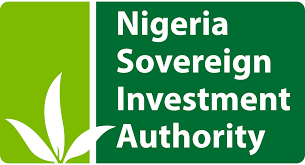The Nigeria Sovereign Investment Authority, in collaboration with international and private partners, has awarded a total of $280,000 in cash and equity to the most promising Nigerian startups at the grand finale of its third edition of the NSIA Prize for Innovation.
The Demo Day 3.0 event, held in Abuja on Saturday, marked a significant expansion of the initiative, transforming it into a strategic platform for funding, mentorship, and global exposure.
D-Olivett Labs emerged as the overall winner of the competition, walking away with $100,000 in a mix of equity and grant support for its innovation that converts agricultural waste into energy and fertiliser.
Promise Point clinched second place, securing $75,000 for its cassava transformation and education innovation, while healthcare startup Gerocare took third place with a $50,000 award for its elderly-focused medical services.
The top three winners shared $220,000 in equity and cash, distributed in a 75:25 ratio in exchange for mutually agreed equity stakes. Seven other finalists won fully-funded placements at a five-week training bootcamp at Draper University in Silicon Valley, USA.
Additional awards included the $45,000 Cascador Impact Prize and the $15,000 Presidential Initiative for Unlocking the Healthcare Value Chain Healthcare Innovation Prize.
Speaking at the event, Managing Director and CEO of NSIA, Mr Aminu Umar-Sadiq, said the programme had evolved from a modest prize scheme three years ago into a broader platform offering education, exposure, and equity support to young Nigerian entrepreneurs.
“This is a proud moment for NSIA. Beyond the prize money, the platform provides education, equity, and exposure—not just to the ten finalists, but to the over 5,000 applicants who submitted entries,” he said.
Umar-Sadiq also announced that NSIA and the Japan International Cooperation Agency have co-launched a $42m innovation fund aimed at supporting startups in health, education, and agriculture.
The fund, he explained, will provide a combination of equity and grants, with $14m already committed by the Japanese Embassy and additional contributions bringing the current fund size to $28m, with plans to reach the $42m target.
“As a direct result of the success of this programme, the NSIA and JICA of Japan are now co-launching an impact innovation fund so that we have a pool of long-term local currency capital to further offer growth capital to these great ideas,” he added.
Finance Minister and Coordinating Minister of the Economy, Mr Wale Edun, who was also present at the event, lauded the finalists for their innovation and drive. He noted that with 65 per cent of Nigeria’s population under the age of 30, the youth remain the engine of future economic growth.
“You are the future, you represent 65 per cent of Nigeria’s population. We need your ideas to move this country forward. We have a 90,000km fibre optic backbone, one of the biggest technology programmes anywhere in the world, and we are also funding women entrepreneurs to enable them to start and grow businesses. Agriculture is critical, and we need new products and methodologies to improve productivity.
“The effort must be sustained because it is all about delivery. The key is implementation. Just yesterday, my team confirmed to me that after months of work, we are now live with our new financing system. You must sustain your ideas, work hard, and never let it be said that you did not push to make them succeed,” Edun said.
He called on young innovators to focus particularly on agriculture, saying the sector holds critical potential for lifting millions out of poverty and transforming Nigeria’s productivity metrics.
Programme Director at Cascador Nigeria, Amanda Etuk, praised the NSIA for its strategic vision and commitment to building a generation of impact-driven founders. She reaffirmed Cascador’s support for the programme and urged continued investment in founders, noting that innovation is the future of economic growth and global relevance.
National Coordinator of PVAC, Dr Abdu Mukhtar, stressed the need to mobilise private capital to scale local manufacturing of healthcare products, build robust ecosystems, and ensure Nigerian entrepreneurs have the resources and regulatory support to succeed.
Deputy Head of Mission at the Embassy of Japan, Mr Kozaki Hitoshi, reaffirmed Japan’s commitment to supporting Nigeria’s innovation ecosystem and expressed satisfaction at the enthusiasm and creativity displayed by the participants.















